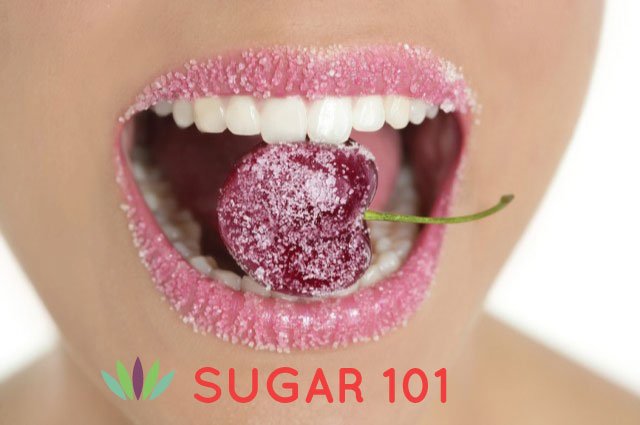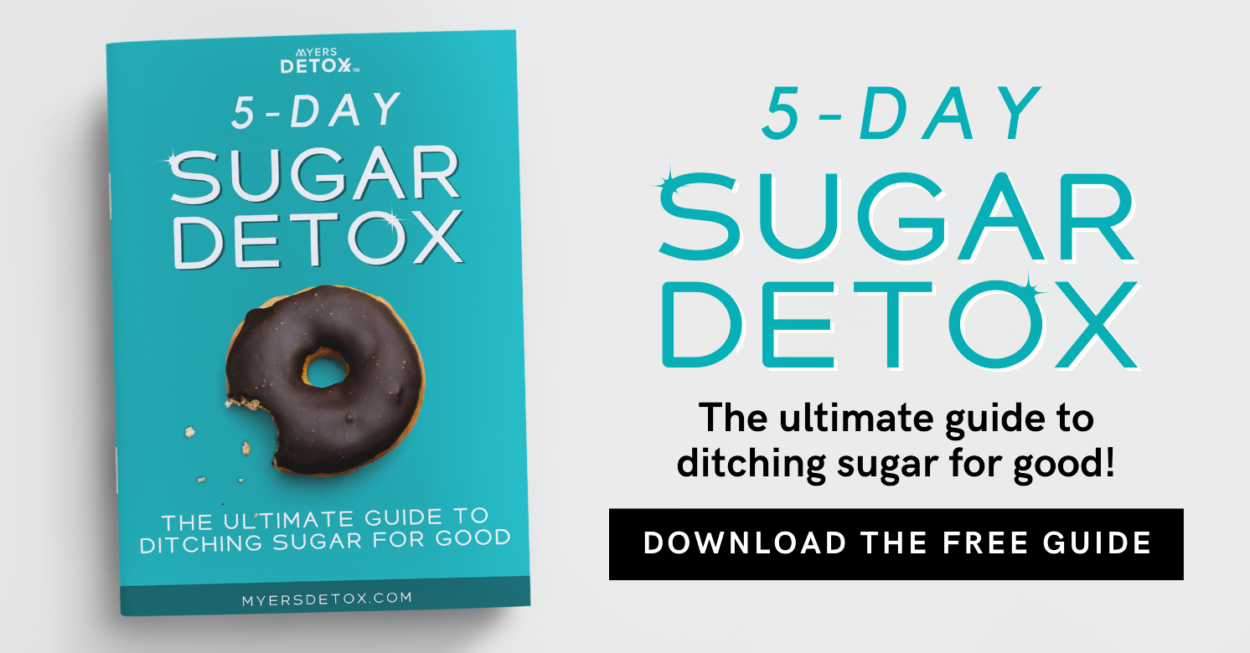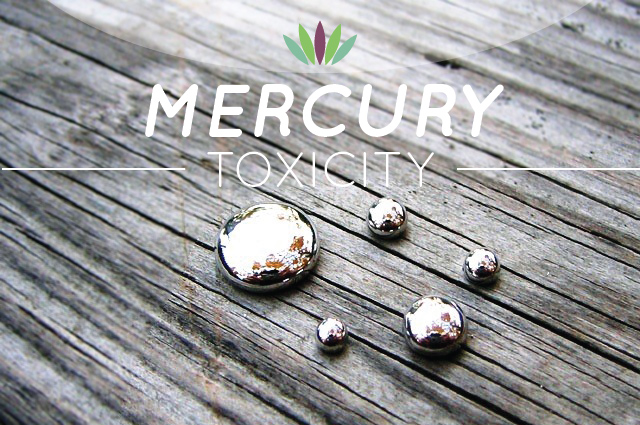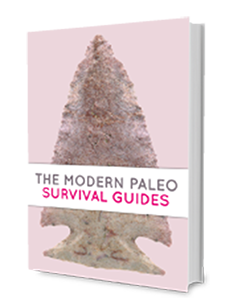Sugar 101

Today I started a 3 week sugar detox. I am white knuckling it! I’ll admit, it’s hell. But it serves to eliminate a food that is killing myself and our country. Let’s explore the basic facts about sugar – Sugar 101. This is the first part in a series about this killer ingredient and how to do a sugar detox.
Our bodies cannot handle more than about 1 teaspoon or 5mg of glucose (sugar) in our blood stream at any given time. But 50 percent of Americans consume one-half pound (1.1kg) of sugar PER DAY—translating to a whopping 180 pounds (400kg) of sugar per year! Science has now shown us, beyond any shadow of a doubt, that sugar in your food, in all its myriad of forms, is taking a devastating toll on your health.
Sugar is loaded into your soft drinks, fruit juices, sports drinks, and hidden in almost all processed foods—from bologna to pretzels to barbeque sauce to ketchup. Fruit is even bred to contain more sugar! Most infant formula has the sugar equivalent of one can of Coca-Cola, so babies are being metabolically poisoned by formula. No wonder there is an obesity epidemic in this country.
We do not have to consume white, refined sugar to be consuming sugar. Sugar includes glucose, fructose (as in fruit sugar), lactose (as in milk), sucrose (as in table sugar), maltose or malts (as in rice malt and honey), jam or jelly (contains concentrated juice, which is high in fruit sugar), maple syrup, corn syrup, palm sugar (traditionally used in macrobiotic cooking), and the very deceiving organic brown sugar, which is not all that different from white sugar. Even alcohol is a sugar. All of these sugars are problematic in many different ways.
Sugar and Disease
Sugar is bad for you in every conceivable way and is one underlying cause of ALL disease. Research confirms that there are 140 ways that sugar adversely affects your health. One of the reasons we have so much disease in the world today is directly related to the increasing consumption of sugar.
One of sugar’s major drawbacks is that it raises the insulin level. An influx of sugar into the bloodstream triggers the release of insulin, which the body uses to keep blood sugar at a constant and safe level. Insulin is the hormone that instructs the body to store fat.
Not only do increased insulin levels tell your body to store sugars (carbohydrates) as fat, they also tell it not to release any stored fat. This makes it impossible for you to use your own stored body fat for energy. You use the carbohydrates for energy. So the excess carbohydrates in your diet not only make you fat, they make sure you stay fat.
High levels of insulin can cause major damage to your body. The most recognized of these is diabetes. Sugar is the reason 8 in 100 people are diabetics, with the problem reaching epidemic proportions worldwide. Only China and India surpass the US in cases of diabetes. In addition, hypertension, obesity, high levels of cholesterol, triglycerides, heart disease, kidney disease, female infertility and neurodegeneration are all caused by eating too many carbohydrates, resulting in high insulin levels.
About 20 years ago, Nancy Appleton, PhD, began researching all of the ways in which sugar destroys our health. Over the years the list has continuously expanded, and now includes 141 points. Here’s just a small sampling (the entire list can be found on her blog):
- Sugar feeds cancer cells and is connected with the development of cancer of the breast, ovaries, prostate, rectum, pancreas, lung, gallbladder and stomach.
- Sugar can cause many problems with the gastrointestinal tract, including an acidic digestive tract, indigestion, malabsorption in patients with functional bowel disease, increased risk of Crohn’s disease and ulcerative colitis.
- Sugar can interfere with your absorption of protein.
- Sugar can decrease growth hormone (the key to staying youthful and lean).
- Sugar can impair the structure of DNA.
- Sugar can cause food allergies. You can become allergic to any food you eat too much.
- Sugar depletes your body of minerals, contributing to osteoporosis and lowered immunity.
Another person sounding the alarm is Dr. Robert H. Lustig, a professor of pediatrics and an obesity specialist at the University of California, San Francisco. He is a key figure in a recent New York Times article called “Is Sugar Toxic?” You can watch Lustig’s famous talk about sugar toxicity on YouTube. I also love Sanjay Gupta’s fantastic report on 60 minutes called Is Sugar Toxic? Funny how all the reports on sugar are entitled Is Sugar Toxic? The answer is YES!
Sugar Basics
Many people believe that some sugars are healthier than others. Guess again. All sugar is detrimental to your health.
- Dextrose, fructose and glucose are all monosaccharides, known as simple sugars. The primary difference between them is how your body metabolizes them. Glucose and dextrose are essentially the same sugar. However, food manufacturers usually use the term “dextrose” in their ingredient list.
- Table Sugar. The simple sugars can combine to form more complex sugars, like the disaccharide sucrose (table sugar), which is half glucose and half fructose.
- High fructose corn syrup (HFCS) is 55 percent fructose and 45 percent glucose. Fructose is shunted directly to the liver where it is converted to fat. Consuming sugar in this form makes you fatter than consuming other forms. After liver metabolism of HFCS, the end products are triglyceride, a form of fat, uric acid and free radicals.
- Agave syrup, falsely advertised as “natural,” is highly processed and is usually 80 percent fructose. The end product does not even remotely resemble the original agave plant. Real agave syrup is very difficult to make and is very expensive. Agave syrup may have a lower glycemic index, which does not raise your blood sugar as much as other sugars, but it’s still sugar, and a bad one at that.
- Honey is about 53 percent fructose, but is completely natural in its raw form and has many health benefits when used in moderation, possessing as many antioxidants as spinach. Completely avoid honey that has been pasteurized and processed. These are lacking the healthful properties of honey as the enzymes and nutrients have been destroyed. They are simply sugar. One of the best honeys around is Manuka Honey.
- Ethanol. This is the triple concentrated sugar in alcohol. This is why people who drink don’t crave sugar! They’re getting plenty. Many alcoholics are hypoglycemic, which prompts them to drink to get sugar to raise their blood sugar.
- Date sugar, palm sugar, coconut sugar. If you have to use any sugars, these sugars make the top of my list…but they’re still bad for you.
Fructose is the Worst Sugar
The number one source of calories in the American diet is soda, in the form of high fructose corn syrup. However, the physiological problems of fructose metabolism extend well beyond a couple of pant sizes:
- Fructose elevates uric acid, which decreases nitric oxide, raises angiotensin, and causes your smooth muscle cells to contract, thereby raising your blood pressure and potentially damaging your kidneys.
- Increased uric acid also leads to chronic, low-level inflammation, which has far-reaching consequences for your health. For example, chronically inflamed blood vessels lead to heart attacks and strokes. A good deal of evidence exists that some cancers are caused by chronic inflammation. Inflammation and high uric acid levels are underlying causes of obesity.
- Fructose causes you to gain weight by fooling your metabolism—it turns off your body’s appetite-control system. Unlike a healthy meal, fructose does not suppress ghrelin (the “hunger hormone”) and doesn’t stimulate leptin (the “satiety hormone”), which together result in your eating more and developing insulin resistance.
- Fructose rapidly leads to weight gain and abdominal obesity, decreased HDL, increased LDL, elevated triglycerides, elevated blood sugar, and high blood pressure—i.e., classic metabolic syndrome.
- Fructose metabolism is very similar to ethanol metabolism (the sugar in alcohol), which has a multitude of toxic effects, including NAFLD (non-alcoholic fatty liver disease). NAFLD affects 30% of the US population. Non-alcoholic fatty liver disease (NAFLD) is directly linked to diabetes and obesity and a whole host of diseases when the liver can no longer work properly or detoxify your body due to this condition.
- Researchers are now finding that fructose causes scarring much the same as alcohol abuse. “We found that increased consumption of high fructose corn syrup was associated with scarring in the liver, or fibrosis, among patients with non-alcoholic fatty liver disease (NAFLD),” said Manal Abdelmalek, MD, MPH, associate professor of medicine in the Division of Gastroenterology/Hepatology at Duke University Medical Center.
You can now see why fructose is responsible for the obesity epidemic in our country. And the very products most people rely on to lose weight—the low-fat diet foods—are often the ones highest in fructose.
Fruit is Full of Sugar
Fruit contains mainly simple carbohydrates or sugars, all of which is fructose. People don’t recognize fruit as a major source of sugar because they think they are eating something really healthy. Fruit does contain some fiber, vitamins, minerals and other nutrients, but most fruit is mainly sugar and water. Fruit is highly overrated nutritionally. Many who are trying to eat healthy eat a lot of fruit because it is quick and easy and satisfies sugar cravings. However, fruit is largely unhealthful today due to:
- Hybridization. Today’s fruit has been bred for increased sweetness, better shelf life, pest resistance, and to resist bruising during travel, but not for better nutrition. Hybrid fruit contains more sugar, but contains fewer vitamins and minerals. Older fruit trees have fruit that is smaller and less sweet. This is the fruit you should eat. If you grow your own fruit, try to get heirloom (old, original) varieties that have not been hybridized. An heirloom seed is seed from a plant that has been passed from one generation to another, carefully grown and saved because it is considered valuable for it’s flavor, hardiness, or other property.
- Pesticides. Fruit is heavily sprayed with pesticides that cause all kinds of health issues, including cancer. If you eat it, you must eat organically grown fruit.
- Acidity. Fruit acids often have an acidic reaction in sick individuals, in spite of what one is told by the acid-alkaline books and websites. Though the fruit itself may be alkaline, it causes acidity indirectly because the sugar in the fruit feeds yeast and bacteria, who’s waste products are very acidic.
- Blood Sugar. Eating fruit often upsets the blood sugar, which, in turn, stresses the adrenals glands just like sugar.
- Eat it Alone. Fruit is hard to digest when combined with other foods. The sugars in fruit begin fermenting other food you eat, feeding pathogenic bacteria and yeast in your intestines, contributing to their growth. Therefore, fruit is best eaten alone.
I would not eat more than one small piece of fruit daily. I’ve gotten to the point where I only eat fruit once a week, if that. Among the best fruits are berries such as strawberries (the most nutritious fruit), blackberries, raspberries and cranberries. Berries are high in anti-oxidants and other health-promoting substances. Other fruits that are okay to eat are green apples and green tipped bananas. Because green tipped bananas are not ripe and are mainly starch, they have much less sugar. You do not need to eat fruit nutritionally and it may be best to avoid it as much as possible due to it’s high sugar content. Learn more about why the fructose in fruit is bad for you and view a chart that tells you how much fructose is in your favorite fruit.
Sugar Names
I’ve compiled an exhaustive list of sugar names that will help you become a food detective, uncovering the hidden sugars manufacturers are slipping into our food. Food and beverage manufacturers constantly look for new sugar names to hide sugar in the foods they produce. The more they hide addictive sugar in their products, the more people buy because sugar is addictive! It’s very easy to read the list of ingredients on a food package, but not recognize some of the names as sugar, and eat the product thinking it is healthy. The sugar industry is constantly coming up with new names for sugar. So be on guard for new hidden sugars with insulin spiking ingredients. GMO after an ingredient indicates that it is almost always derived from a Genetically Modified Organism or is Genetically Modified. That is, unless it’s in a 100% organic product.
Agave nectar
Barbados Sugar
Barley malt
Beet sugar (GMO)
Blackstrap molasses
Brown sugar
Brown rice syrup
Cane crystals
Cane juice crystals
Cane sugar
Caramel
Carob syrup
Castor sugar
Confectioner’s sugar
Corn syrup (GMO)
Corn sweetener (GMO)
Corn syrup solids (GMO)
Crystalline fructose
Date sugar
Demerara Sugar
Dextrin
Dextran
Dextrose (GMO)
Diastatic malt
Diatase
D-mannose
Evaporated cane juice
Florida Crystals
Fructose
Fruit juice
Fruit juice concentrate
Galactose
Glucose syrup solids (GMO)
Golden sugar
Golden syrup
Granulated sugar
Grape sugar
Grape juice concentrate
HFCS (GMO)
High-fructose corn Syrup (GMO)
Honey
Icing sugar
Invert sugar (GMO)
Lactose
Malt syrup
Maltodextrin (GMO)
Maltose (GMO)
Maple syrup
Molasses
Muscovado sugar
Organic raw sugar
Panocha
Powdered sugar
Raw sugar
Refiner’s syrup
Rice Syrup
Sorghum syrup
Sucrose
Sugar
Syrup
Table sugar
Treacle
Turbinado sugar
Sugar is the culprit in contributing to or worsening almost any health condition and disease. For most, their waistline expands proportionately to the amount of sugar they consume. You must begin thinking about drastically reducing your consumption to 25 grams or less per day, the recommended amount for health, or completely eliminating it from your diet if you plan to live long.
Have I left anything out of this blog post? Were you able to kick sugar? How did you do it? How has it improved your health? Tell me your story by leaving a comment below. I want to know!
Click Here for References+
References
1. American Diabetes Association. Diabetes Statistics.
http://www.diabetes.org/diabetes-basics/diabetes-statistics/
2. Appleton, Nancy, PhD. 141 Reasons Sugar Ruins Your Health.
http://nancyappleton.com/141-reasons-sugar-ruins-your-health/
3. Carey, Emily. Wieckowska, Anna. Carey, William D. Non-Alcoholic Fatty Liver Disease.http://www.clevelandclinicmeded.com/medicalpubs/diseasemanagement/hepatology/nonalcoholic-fatty-liver-disease/#section2
4. Gupta, Sanjay. 60 Minutes. Is Sugar Toxic?
http://www.cbsnews.com/video/watch/?id=7417238n
5. Fallon Morell, Sally. Nagel, Rami. Agave Nectar: Worse Than We Thought. http://www.westonaprice.org/modern-foods/agave-nectar-worse-than-we-thought
6. Mercola, Joseph, MD. This Addictive Commonly Used Food Feeds Cancer Cells, Triggers Weight Gain, and Promotes Premature Aging. April 20, 2010. http://articles.mercola.com/sites/articles/archive/2010/04/20/sugar-dangers.aspx
7. ** More Evidence Sugar Feeds Cancer. July 18, 2006. http://articles.mercola.com/sites/articles/archive/2006/07/18/more-evidence-sugar-feeds-cancer.aspx
8. ** The Diet Doctor Everybody Loves – Gary Taubes. September 20, 2012. http://articles.mercola.com/sites/articles/archive/2012/09/20/gary-taubes-discusses-weight-gain.aspx
9. ** This Common Food Ingredient Is As Addictive as Cocaine? March 13, 2010. http://articles.mercola.com/sites/articles/archive/2010/03/13/richard-johnson-interview.aspx
10. Skerret, PJ. Is Fructose Bad For You?
http://www.health.harvard.edu/blog/is-fructose-bad-for-you-201104262425
11. Taubes, Gary. Is Sugar Toxic? April 13, 2011. http://www.nytimes.com/2011/04/17/magazine/mag-17Sugar-t.html
12. Wilson, Lawrence, MD. Sugar or Carbohydrates. July 2010. http://www.drlwilson.com/Articles/SUGAR%20BASIC.htm
13. ** Fructose and Why to Avoid it. September 2012. http://www.drlwilson.com/ARTICLES/FRUCTOSE.htm











I eat wayyyyy to much sugar and i know it. I’m actually trying to cut my sugar intake by half. I love birthday cake though. My Grandmother had diabetes so i’m careful. I’ll try the sugar detox and see how i feel. I love all your posts! They teach me so much about how to keep my body healthy. Thank you.
You’re welcome! I’m happy the blog helps you get healthy!! If diabetes runs in your family, you definitely want to cut back on that birthday cake! Even if it runs in your family genetically, you can overcome it. Those genes are only expressed through bad diet and lifestyle. Genes get turned on and off depending upon a healthy or bad diet or unhealthy lifestyle habits like not exercising, smoking, sress, etc. What many think is an inheritance of genes is really an inheritance of unhealthy diet and lifestyle habits taught to them and passed down through the generations.
I completely agree that processed sugars are toxic to our bodies but sugar coming in whole foods is not “just sugar” & I do believe fruits get a bad rap because of this. I find it completely off track of eating healthy to eliminate fruit just because of sugar content & comparing it to processed sugar while brushing off the fact that it’s comprised of total nutrients working in harmony where processed sugars are always going to be “chemically altered.”
Most people who pack in the pasta, breads, & grains will avoid fruit instead of the foods that are the major contributors to their problems. Fruit is not the enemy like “processed carbs” are. :~/
I do agree with you that many may avoid fruit and eat empty carbs instead.
I generally recommend avoiding fruit for a few reasons. It’s grown for mass consumption to be larger, sweeter, less nutritious, and lower in mineral content. Fruit is far less nutritious than most people think and only serves to contribute to epidemic yeast and fungal overgrowths. However, berries have escaped hybridization and can be enjoyed in moderation. Green apples and green tipped bananas are also low in sugar.
Most fruit today is very hybridized to contain more sugar, namely fructose. Fructose, a prominent sugar in fruit, is one of the worst sugars to consume. Fructose is sent directly to the liver, where it should be converted to glucose. However, most people cannot process it very well due to toxic livers and it can instead be converted to triglycerides and other fats. Sugar in any form is not healthy, even from fruit. Most people today are in carb overload already and do not need more sugar. If you do eat fruit, it is generally recommended to reduce fructose consumption to 25 grams a day. This means that one piece of fruit or one serving per day is fine.